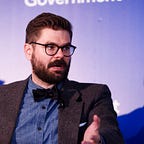Where Economists and Data Scientists Diverge
Recently I chanced upon an article by Deirdre McClosey that detailed a conversation with fellow traveller Richard Bower on economists and those who “believe in economics.” McCloskey summarized Bower triad of economic thinking: “a thought of maximization, a thought of equilibrium (see maximization), and a thought of interaction (see equilibrium and maximization).” She goes one further. A thought of accounting identity should be included as well for those that believe in economics.
McCloskey continues the thought: “I think economics, like philosophy, cannot be taught to nineteen-year olds… A nineteen-year old has intimations of immortality, comes directly from a socialized economy (called a family), and has no feel on his pulse for those tragedies of adult life that economists call scarcity and choice.” In her estimation, long after grad school when teaching classes or advising governments do economists actually come to believe in economics. Economics, like any good religion, relies upon a late in life conversions.
Reading this article reminded me of an old post from Cathy O’Neil, author of “Weapons of Math Destruction,” where she took on the issue of economists as a science. Her views aren’t far from the norm. Politics is “where people like myself get really pissed at economists, when they treat their estimates as facts with no uncertainty.” And yet, it is often in the cauldron of political life, in advising governments, where economists attain their moksha, their freedom from their disciplinary ignorance. Only when confronted with the experience can one fully grasp equilibrium, interaction, and accounting.
As O’Neil details in her book, her drive to be an advocate comes from her time on Wall Street, working for a hedge fund. I cannot help but think there is a skew here that is all too common. Data science, which she covers extensively, isn’t all that worried about equilibrium, interaction, or accounting identity. It is, however, concerned with optimization, just like Wall Street.
Economists and data scientists often speak in the same voice, and so it is easy to confuse the two, to see them as part of the same constrained view. But those who believe in economics have a different dialect.
